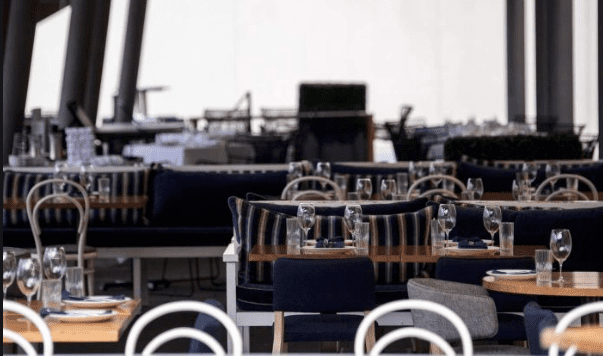The hospitality industry fell in under a week. There were rumblings of things about to go wrong on Monday, and by Saturday almost everyone had lost their jobs.
It’s hard to describe the grief I feel at the loss of my own. I feel foolish for trusting there to be work in an industry known for its precarity at the best of times. In Sydney, restaurants close as frequently as they open. How could I assume they would survive a pandemic?
—
Hospitality in Sydney is a more interesting study as a scene than as an industry. On the business side of things, it’s much the same as anywhere else: companies are profit-driven, workers are exploited. I’m among the lucky few that work for establishments that pay correctly and treat their staff well. Most others are the victims of missing payslips and an award system that is frequently “misunderstood.” There is very little in the way of union support, despite the successes of Hospo Voice in Melbourne. Like Melbourne, exploitation is rife.
This is perpetuated by a media class more interested in Neil Perry’s burgers than the workers from whom he has stolen millions of dollars of wages. The workers that make any of these places worth writing about in the first place — the waiters, the glassies, the bartenders and the chefs, are ignored in the face of the latest celebrity opening. It is these people that create the culture of hospitality in Sydney, and it is for them that I mourn.
The hospitality scene in Sydney is tight-knit. You know everyone. You either worked with them, know someone that worked with them, or met them at 4am at the Strawberry Hills Hotel. In a demanding, high pressure service environment, the relationships that are formed can become those most important in your life. There’s also a camaraderie in being “hospo,” heightened by the sense that people outside the industry don’t really understand it.
Friendships that aren’t formed behind a bar are formed over one, on shared breaks and drinks after shifts. The bars and restaurants that we visit on and off shift, as well as the ones we work in, are the physical base of our community. Their staff become an extended part of our working lives, as much a part of it as the people we actually work with. The loss of these spaces has contributed considerably to our shared grief — though some will reopen, many will not.
I think that I am grieving the loss of these spaces the most. This loss, though temporary, is more than an absence of places to drink in. Their walls hold the memories of departed friends, of people I won’t be seeing for a while. Many won’t make it back to Sydney, even after the pandemic abates.
I am also feeling a deep sorrow at my lack of work. I miss my customers. I long for their conversation and their company, their familiarity. I miss even the worst of them, not for themselves, but for the solidarity they unwittingly created between me and my coworkers. I feel the loss of every hour of my working week as keenly as I did in the moment I knew my job was lost.
—
COVID-19 may have sounded the death knell, but it wasn’t what killed hospitality. The structures of power and oppression that control our society are ever present, if not amplified by the nature of our work. Merivale mournlessly stood down the same workers they have underpaid for a decade. Racism and xenophobia is rife, with migrant workers largely left out of the COVID-19 discussion, even as it affects them the most. Many workers are currently existing in Fair Work Act limbo, unsure if they have been stood down or made redundant, or what either term means.
Though many workers are individually political, the invisibility of the union movement in Sydney hospitality means that most aren’t unionised.
Watching their response to the unfolding crisis, it’s easy to understand why many workers are disillusioned with the left and their respective unions. The university educated, middle class left condemn those that fail to practice social distancing with religious fervour, whilst ordering Ubereats. It would seem that there is no greater evil than going outside, unless you’re a delivery driver bringing the outraged their food. All the while, many of the recently unemployed see social distancing as the direct cause of their situation — and who can blame them?
Those with a job in hospitality are the lucky few. For most of us, it’s over. Many will have to return home, whether that be interstate or overseas. The rest of us are left waiting for Centrelink, watching as the government stutters over decisions that will determine how we survive the next few months.
In some senses, COVID-19 has been transformative.The response to the crisis has revealed an overwhelming sense of solidarity and community. Those lucky enough to still hold their jobs have provided for those without, as free meals are offered across the city. The economic devastation of the pandemic has instilled a more furious and immediate class consciousness amongst my co workers than I have ever encountered before.
Though I am filled with sorrow, I am also filled with hope: hope for my community, for my friends, for our lives.





